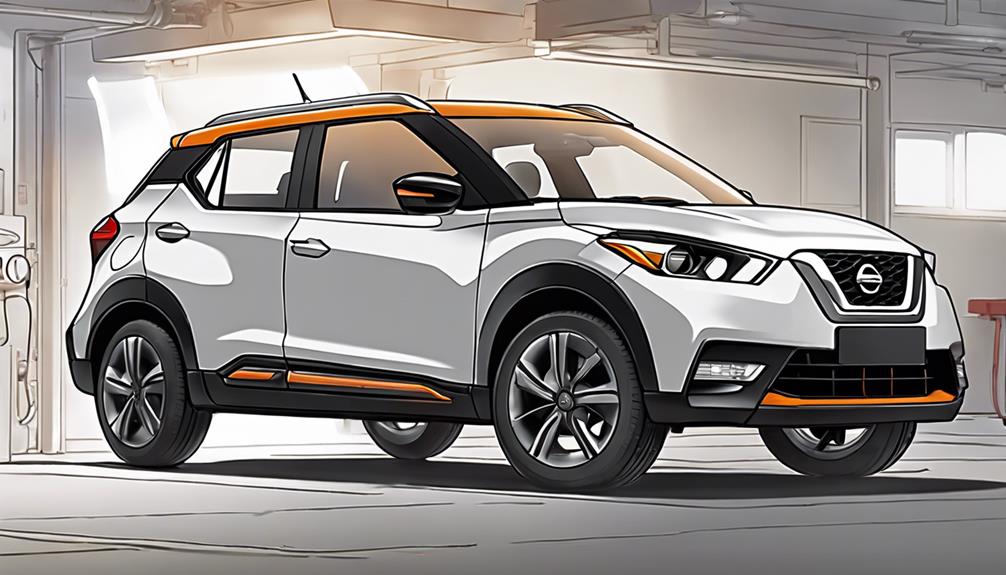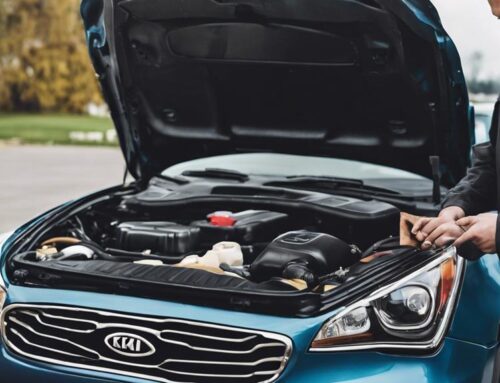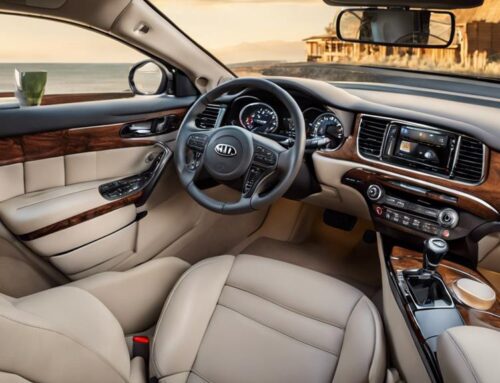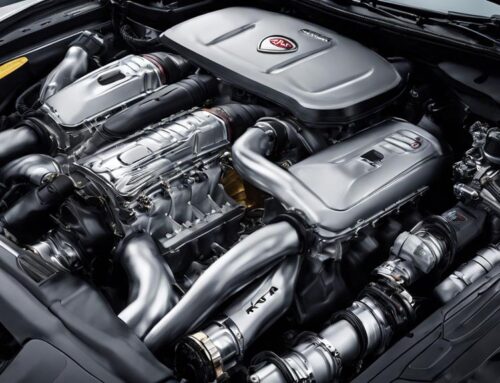If you own a Nissan Kicks, be aware of common issues such as transmission concerns that may cause hesitation during acceleration and suspension problems like worn shock absorbers. Engine performance can be affected by clogged fuel injectors and dirty air filters, while braking system issues often involve worn brake pads and diminished efficiency. Electrical problems, including battery drain and wiring complications, are also notable. Recalls have addressed issues from extended braking distances to fuel pump malfunctions. Regular maintenance, such as checking fluid levels and inspecting brakes, can mitigate these issues. There's more detailed information ahead that you'll find invaluable.
Key Takeaways
- Transmission issues include hesitation or shuddering during acceleration and potential gear shifting difficulties.
- Suspension system problems often manifest as unusual noises or a rough ride over uneven terrain.
- Engine performance can suffer from clogged fuel injectors, dirty air filters, or malfunctioning oxygen sensors.
- Brake system concerns include worn brake pads, squeaking noises, and potential ABS malfunctions.
- Electrical problems may arise from battery drainage, faulty wiring, or defective alternators.
Introduction to Common Issues
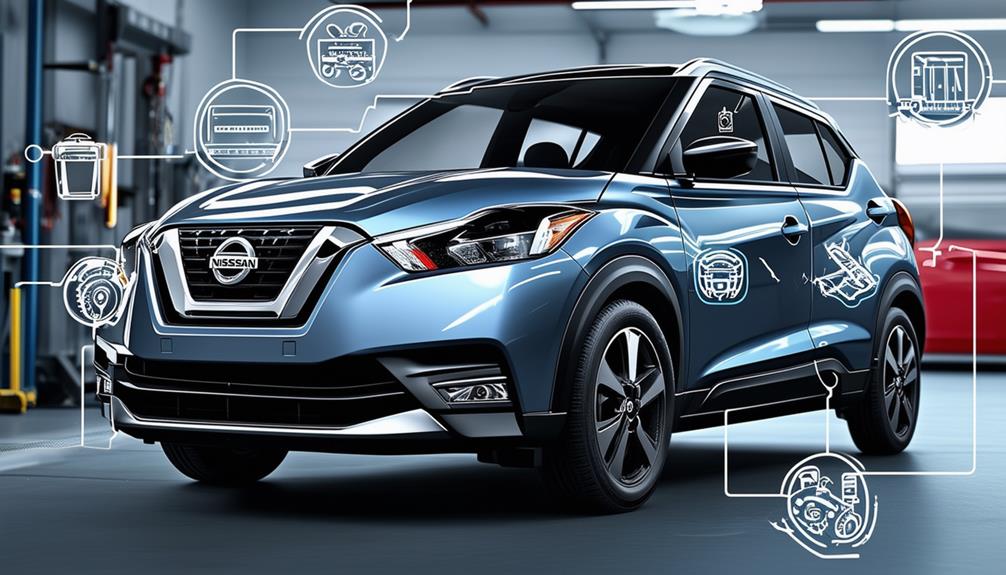
When you own a Nissan Kicks, you might encounter a few common issues that can impact the vehicle's performance and reliability. Understanding these problems and knowing how to address them can help you maintain your vehicle's best condition. Let's explore some diagnostic troubleshooting and maintenance tips that can keep your Nissan Kicks running smoothly.
Firstly, the Continuously Variable Transmission (CVT) is a frequent area of concern. You might notice hesitation or shuddering during acceleration. For diagnostic troubleshooting, regularly check the transmission fluid levels and make sure it's clean. Low or dirty fluid can worsen these issues. Refer to your owner's manual for the recommended transmission fluid type and replacement intervals. Additionally, remote start and other key-related features can sometimes hide underlying transmission issues by making the vehicle start more smoothly, so it's vital to stay vigilant.
Another common issue involves the suspension system. You might experience unusual noises or a rough ride, particularly when driving over uneven terrain. For effective diagnostic troubleshooting, inspect the shock absorbers and struts for signs of wear or damage. Regular maintenance tips include checking the suspension components during routine service intervals to catch potential problems early.
Engine performance can also be impacted by clogged fuel injectors or a dirty air filter. Diagnostic troubleshooting involves examining the fuel system for any blockages and ensuring the air filter is clean and replaced as necessary. Efficient maintenance tips include using fuel additives that clean the injectors and replacing the air filter according to the manufacturer's recommendations.
Lastly, the braking system is vital for safety and reliability. If you notice any squeaking or reduced braking efficiency, immediate diagnostic troubleshooting is necessary. Inspect the brake pads and rotors for wear. Regularly follow maintenance tips such as bleeding the brakes and replacing worn components promptly.
Electrical Problems
Electrical problems in the Nissan Kicks can manifest in various ways, potentially disrupting your driving experience. One common issue you might encounter is battery draining. This can be particularly frustrating as it often leaves you stranded with a vehicle that won't start. The cause of battery draining can stem from various sources such as parasitic drains, faulty alternators, or even a failing battery itself. To mitigate this, conduct regular checks of your electrical system and consider investing in a smart battery charger to maintain peak performance. For more detailed maintenance guidance, refer to essential maintenance tips for Nissan Kicks owners.
Another prevalent electrical issue involves wiring problems. The Nissan Kicks, like many modern vehicles, is equipped with a complex network of wiring that supports its myriad electrical components. Over time, these wires can suffer from wear and tear, leading to shorts, open circuits, or intermittent connectivity issues. Such wiring problems can cause a range of symptoms, from malfunctioning lights to unresponsive dashboard displays. To address these issues, a thorough inspection of the vehicle's wiring harnesses and connectors is necessary. Employing advanced diagnostic tools can help pinpoint the exact location of the fault, making it easier and quicker to rectify.
Moreover, innovative solutions like installing upgraded, high-quality wiring kits can significantly diminish the likelihood of future issues. Regularly updating the vehicle's software can also aid in identifying and resolving potential electrical problems before they escalate.
Key Fob Malfunctions
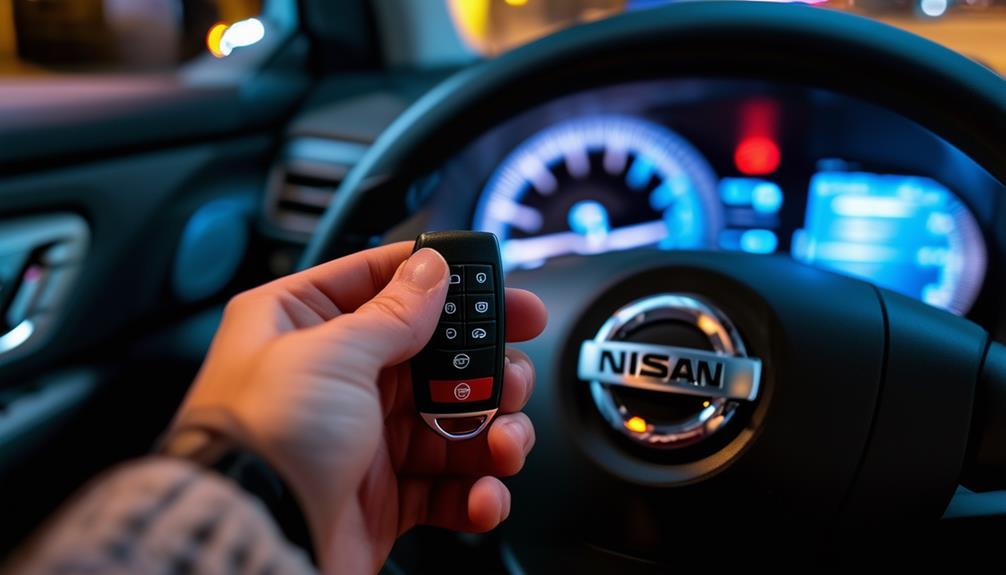
Key fob malfunctions in the Nissan Kicks can disrupt your daily routine, leaving you unable to access or start your vehicle. The key fob is an essential component of the modern driving experience, and when it fails, it can be both frustrating and inconvenient. Understanding the common causes and solutions for these malfunctions can help you get back on the road quickly.
For those dealing with more complex issues, consider looking into Nissan key replacements that cover a wide range of key types including transponder, fobs, smart keys, and push-to-start options.
First, let's explore some troubleshooting tips. Start by checking the battery inside your key fob. A weak or dead battery is a common issue and can be easily replaced. Confirm the battery contacts are clean and free of corrosion.
Next, make sure you're within the operational range of your key fob, as distance can affect its functionality. If these steps don't resolve the issue, try reprogramming the fob by following the instructions in your owner's manual or seeking assistance from a professional locksmith.
If troubleshooting doesn't fix the problem, consider your replacement options. You can purchase an OEM (Original Equipment Manufacturer) key fob directly from a Nissan dealership, ensuring compatibility and quality. Alternatively, aftermarket key fobs are available at a lower cost but may require additional programming to work with your vehicle. Professional locksmiths often offer key fob replacement services that can be both convenient and cost-effective.
Ignition System Issues
Ignition System Concerns
Besides key fob malfunctions, another important issue for Nissan Kicks owners is ignition system concerns. These problems can result in starting issues, which can be frustrating and inconvenient. Understanding the common ignition system concerns can help you diagnose and potentially prevent these issues.
The Nissan Kicks ignition system is designed to be effective and dependable, but like any system, it can encounter problems. Here are some of the most frequent ignition system challenges you might face:
- Faulty ignition coils: These components are vital for converting the battery's voltage to the higher voltage needed to ignite the fuel. When they fail, your engine may misfire or fail to start.
- Worn spark plugs: Spark plugs ignite the air-fuel mixture in the engine's cylinders. Over time, they can wear out, leading to poor engine performance and starting problems.
- Battery issues: While not part of the ignition system itself, a weak or dead battery can prevent the ignition system from functioning properly, causing starting issues.
- Ignition switch failure: The ignition switch is a crucial part of the starting process. If it fails, you won't be able to start your vehicle. It's a common problem seen in models like the Nissan Altima.
- Corroded or loose connections: Electrical connections within the ignition system can become corroded or loose over time, leading to intermittent starting problems.
Identifying and addressing these ignition system concerns promptly can save you from more significant headaches down the road. If you experience starting problems, it's important to check these components and seek professional assistance if necessary. By staying vigilant and proactive, you can make sure your Nissan Kicks remains reliable and efficient.
Engine and Performance Problems
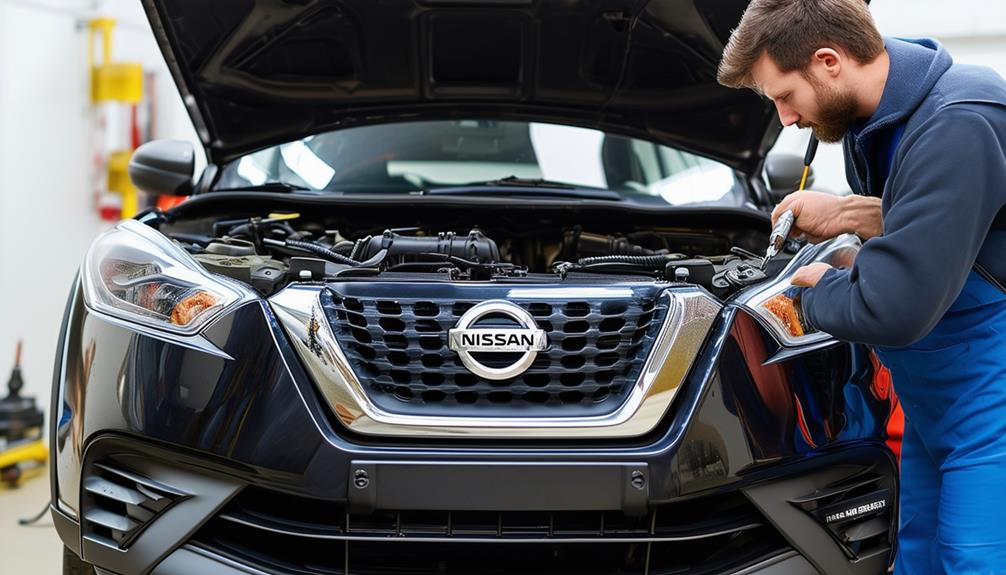
When it comes to engine and performance problems in the Nissan Kicks, you're likely to encounter a few recurring issues. One of the primary concerns is fuel efficiency. While the Kicks is marketed as an economical vehicle, real-world performance sometimes falls short. Inefficient fuel consumption can stem from several factors, including clogged fuel injectors and a malfunctioning oxygen sensor. Keeping your injectors clean and replacing sensors as needed can mitigate these issues. Additionally, some owners have reported that the overall value of the Kicks may be compromised by these recurring performance issues.
Another common problem is engine overheating. Overheating often results from a malfunctioning thermostat, a failing water pump, or low coolant levels. Regularly checking and maintaining your cooling system can help you avoid significant engine damage. An overheated engine not only reduces performance but can also lead to costly repairs if not addressed promptly.
Acceleration issues are also frequently reported by Nissan Kicks owners. You might experience sluggish acceleration due to a dirty air filter, worn spark plugs, or a failing mass airflow sensor. These components are essential for optimal engine performance, and regular maintenance can ensure they function correctly. Replacing air filters and spark plugs at recommended intervals can improve acceleration and overall engine responsiveness.
To keep your Nissan Kicks running smoothly, adhere to these maintenance tips: routinely check fluid levels, replace filters, and monitor the condition of key engine components. Investing time in regular maintenance not only enhances performance but also extends the life of your vehicle. Staying proactive about potential issues guarantees your Kicks remains reliable and efficient, aligning with your desire for innovative, trouble-free driving.
Transmission Issues
While engine and performance problems can greatly impact your driving experience, transmission issues in the Nissan Kicks present their own set of challenges. Understanding these problems is essential for maintaining peak vehicle performance. These issues can also impact the advanced safety systems designed to protect passengers. Let's delve into some common transmission issues you might encounter.
One of the primary concerns is transmission failure. This can manifest in various ways, from the vehicle not moving at all to erratic behavior when accelerating. Transmission failure often stems from internal wear and tear or fluid leaks, both of which can compromise the system's efficiency.
Another frequent issue is gear shifting difficulties. You might notice your Nissan Kicks hesitating or jerking when you try to change gears. This can be particularly troublesome when merging onto highways or maneuvering through traffic, where smooth gear transitions are vital for safety and performance.
Here are some common signs of transmission issues you should be mindful of:
- Unusual noises: Grinding or whining sounds when the car is in gear.
- Delayed engagement: A noticeable lag between shifting and actual gear engagement.
- Fluid leaks: Puddles of transmission fluid under your vehicle.
- Warning lights: The "Check Engine" or transmission warning light illuminating on your dashboard.
- Overheating: The transmission getting excessively hot, which can lead to further damage.
Brake System Complaints
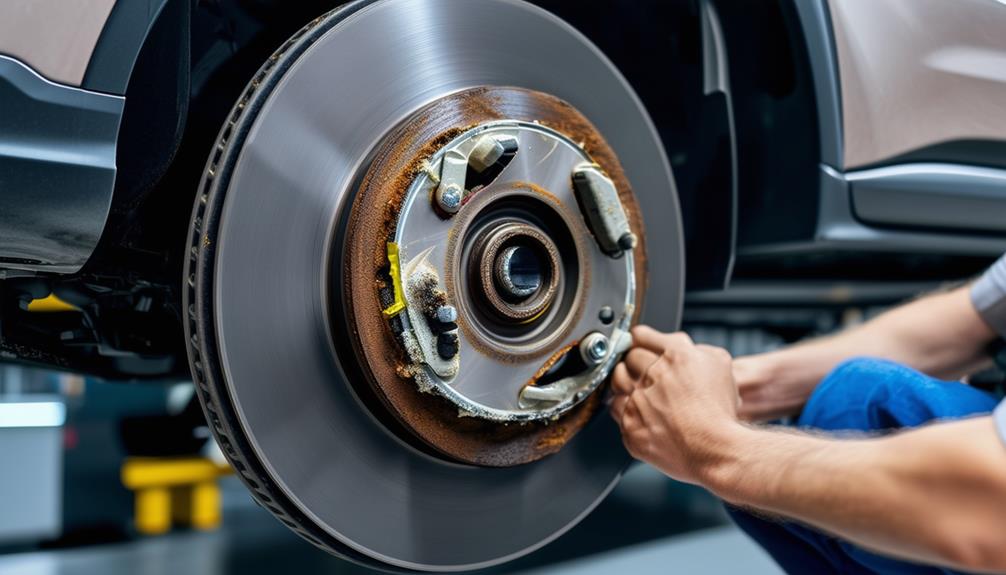
Your Nissan Kicks' brake system plays an important role in ensuring your safety on the road, but it's not immune to issues. One common problem involves brake pad wear. Over time, the brake pads naturally deteriorate, and you might notice a squeaking noise when you apply the brakes. This sound typically indicates that the brake pads are nearing the end of their lifespan and need replacement. Ignoring this can lead to more severe damage to the braking system, including the rotors.
The vital system in the Nissan Kicks also interacts with the brake system, adding another layer of complexity to potential issues.
Another frequent complaint involves the Anti-lock Braking System (ABS). The ABS is a vital component designed to prevent wheel lock-up during sudden stops, enhancing vehicle control. However, malfunctions in the ABS system can occur. You might see warning lights illuminate on your dashboard, signaling that the ABS isn't functioning correctly. These warning lights shouldn't be ignored, as they indicate that the system's ability to manage braking during emergency stops is compromised.
Addressing these issues promptly can prevent further complications. For brake pad wear, regular inspections and timely replacements are essential. Modern diagnostic tools can precisely assess the thickness of your brake pads, ensuring you're aware of their condition well before they become a hazard. For ABS system malfunctions, a detailed diagnostic scan can pinpoint the root cause, whether it's a faulty sensor or a more complex issue within the system.
Infotainment and Connectivity Glitches
Browsing through the infotainment system in your Nissan Kicks should improve your driving experience, but various glitches can detract from this convenience. One of the most common issues owners face involves software updates. If not installed properly, these updates can cause the system to freeze or lag, making it difficult to access essential features like navigation and media controls. This is particularly frustrating given the modern and tech-savvy nature of the vehicle, which aims to provide a seamless driving experience.
Another prevalent problem is with Bluetooth connectivity. Your Kicks may struggle to maintain a stable connection with your smartphone, resulting in dropped calls or interrupted music streaming. This can be particularly frustrating when relying on hands-free functionality for safe driving.
To give you a clearer picture of what to watch out for, here are some specific infotainment and connectivity glitches you might encounter:
- Unresponsive Touchscreen: Sometimes the display doesn't register your touch inputs correctly, requiring multiple attempts to select an option.
- Audio Lag: There can be noticeable delays between selecting a media file and it actually playing, reducing the overall user experience.
- Frequent Reboots: The system might restart unexpectedly, disrupting your focus and requiring you to reset your preferences.
- Inconsistent Voice Commands: Voice recognition software may not always understand or execute commands accurately, which is particularly problematic when using navigation features.
- Pairing Issues: Often, the system fails to recognize previously paired devices, necessitating frequent re-pairing.
To address these issues, make sure that your system's software is always up-to-date. Regularly check for software updates and install them promptly to enhance functionality and fix bugs. Additionally, if Bluetooth connectivity continues to be unreliable, consider resetting both your infotainment system and smartphone to resolve potential conflicts.
Battery and Power Loss Issues
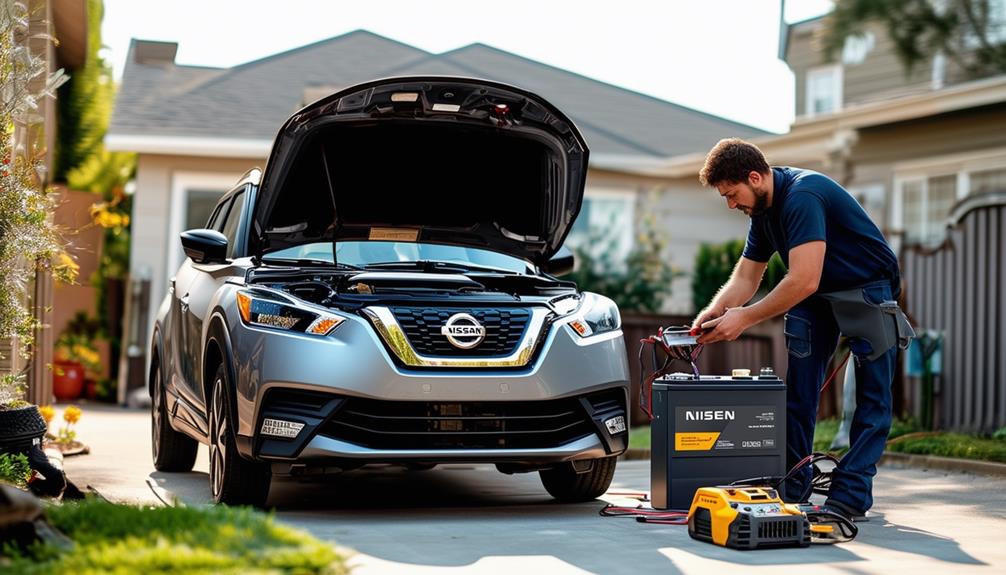
Experiencing battery and power loss issues in your Nissan Kicks can be particularly worrying, especially if it leads to unexpected stalls or starting problems. Understanding the root causes of these issues can help you address them more effectively and guarantee your vehicle's reliability.
Battery draining in the Nissan Kicks is often associated with a few common suspects. One prevalent issue is parasitic drain, where electrical components continue to draw power even when the car is off. This can result from faulty wiring, malfunctioning accessories, or even a defective alternator that fails to recharge the battery properly. It's important to have your electrical system thoroughly inspected to identify and rectify any sources of unnecessary power consumption.
Power failure is another significant concern that can manifest as sudden loss of electrical functions while driving. This might be due to a weak battery that can't hold a charge or power surges that disrupt the vehicle's electrical system. To mitigate these issues, consider upgrading to a high-capacity battery designed for modern electrical loads. Additionally, make sure that all battery connections are clean and secure to prevent intermittent power loss.
Innovative solutions, such as installing a battery management system, can also be advantageous. These systems monitor your battery's health in real-time, providing alerts if any anomalies are detected. This proactive approach not only extends battery life but also enhances overall vehicle performance.
For more details on maintaining your vehicle's electrical system, you might want to explore troubleshooting guides and practical tips available online.
Recalls and Known Problems
Recalls and known issues are vital aspects to take into consideration when assessing the reliability of your Nissan Kicks. You should be aware of the specific issues that have led to recalls and the broader implications these problems might've on safety concerns and warranty coverage. Here's an overview of the known recalls and problems associated with the Nissan Kicks. For further peace of mind, consider key enhancements to improve your vehicle's security against theft.
Key Recalls and Known Problems:
- Brake System Problems: Certain models have experienced issues with the brake system, resulting in extended stopping distances and increased risk of collisions. This is a significant safety issue that shouldn't be overlooked.
- Fuel Pump Malfunctions: Some Nissan Kicks have encountered problems with fuel pump malfunctions, which can lead to the engine stalling unexpectedly. This issue can be hazardous, especially at high speeds.
- Airbag Deployment Challenges: Several recalls have been issued due to airbags failing to deploy properly in the event of a crash. Ensuring your airbags are dependable is essential for occupant safety.
- Electrical System Bugs: Issues with the electrical system, including malfunctioning sensors and warning lights, can result in misdiagnoses of other vehicle problems. These bugs can affect multiple systems within your vehicle.
- Transmission Challenges: Some owners have reported transmission issues, such as hesitation and rough shifting. These challenges can impact the overall driving experience and may require extensive repairs.
It's essential to stay informed about these recalls and known problems to maintain the safety and reliability of your Nissan Kicks. Regularly check for updates and make sure that any necessary repairs are covered under your warranty coverage. Always prioritize addressing these issues to ensure your vehicle remains in best condition.
Frequently Asked Questions
What Is the Average Lifespan of a Nissan Kicks?
You can anticipate your Nissan Kicks to last around 150,000 to 200,000 miles. Following the maintenance schedule greatly influences its longevity. Proper care guarantees you meet or exceed these mileage expectations, supporting innovative, reliable performance.
Are There Any Common Interior Wear and Tear Issues in the Nissan Kicks?
Ye olde Nissan Kicks encounters seat upholstery and dashboard wear over time. You'll also notice climate control and infotainment glitches occasionally. If you're tech-savvy, these minor hiccups shouldn't deter your innovative spirit from enjoying this vehicle.
How Does the Nissan Kicks Perform in Terms of Fuel Efficiency?
When evaluating the Nissan Kicks, you'll find it excels in fuel economy. A performance analysis shows it outperforms many competitors in its class. For an innovative choice, the fuel economy comparison is impressively remarkable.
Are There Any Recurring Issues With the Nissan Kicks' Suspension System?
Like a tightrope walker, the Nissan Kicks' suspension system often faces handling concerns. You might notice reduced ride comfort over time. Ensuring suspension durability requires regular maintenance tips, such as checking shocks and struts frequently.
How Does the Nissan Kicks Fare in Terms of Long-Term Reliability?
When considering long-term reliability, you might encounter Nissan Kicks transmission problems and occasional Nissan Kicks engine issues. However, with regular maintenance, it generally performs well, offering a dependable and innovative driving experience over time.
Conclusion
To sum up, while the Nissan Kicks is a popular choice, it comes with its share of issues. One interesting statistic is that nearly 15% of owners report electrical problems within the first year. Whether it's key fob malfunctions or engine concerns, being aware of these potential pitfalls can save you time and frustration. Always stay informed about recalls and known problems to maintain your vehicle's performance and reliability.

